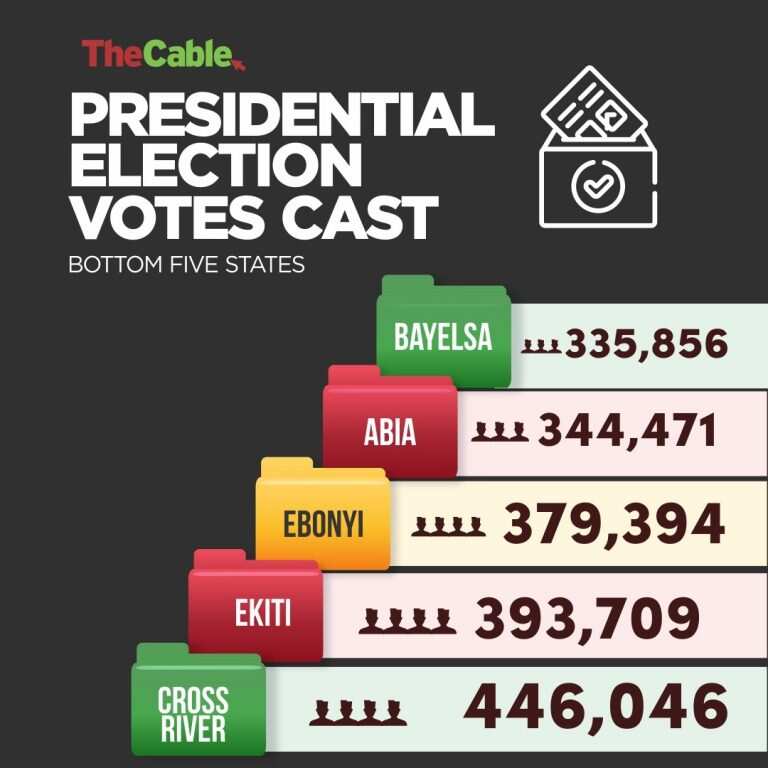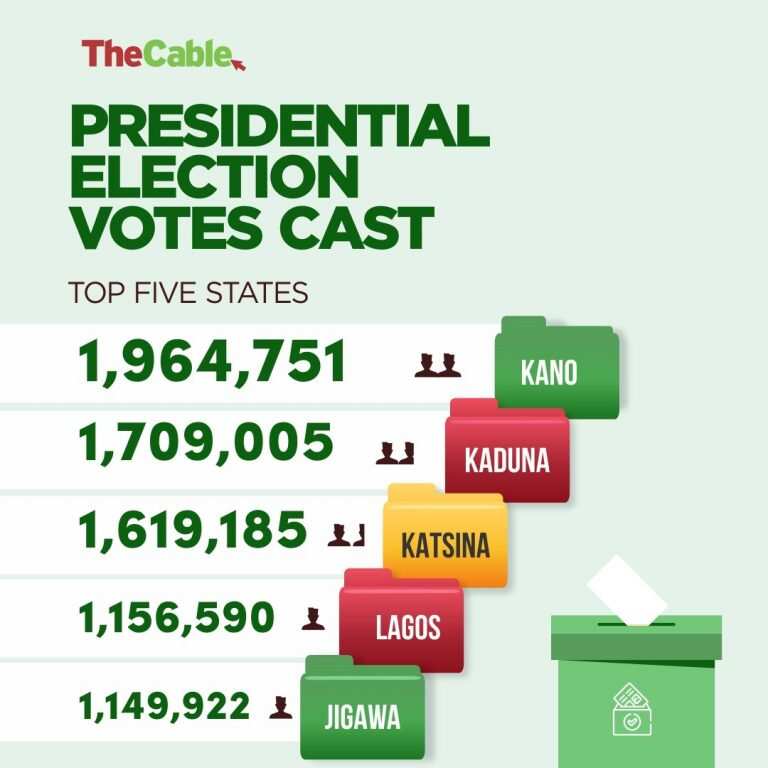- A recent analysis has shown that President Muhammadu Buhari's popularity in the north started in 2003
- The analysis also placed Lagos as a major decider in any presidential election
- It was revealed that out of every 100 Nigerian with PVCs, only 35 voted in the last election
In a recent analysis by The Cable, it was revealed that President Muhammadu Buhari's popularity in the north has been on since 2003 when the president started running for office, securing six million votes from the region for every election contested.
The analysis also revealed that the president gained inroad into the south with the aid of the alliance with the Action Congress of Nigeria (CAN) which brought about the creation of the All Progressives Congress (APC).
READ ALSO: Elections: What happened in Akwa Ibom on February 23 was robbery - Buhari
It was also found out that Buhari had always failed in the southeast zone until 2019 where he polled a massive 403,968 votes despite Peter Obi candidacy, unlike in 2015 where he had low votes of 198,248.

Infographics showing Buhari's performance in the southeast. Photo credit: The Cable
Source: UGC
The president had a slight downturn in his outing in the north in 2019 when compared to his previous victories in the region. For instance, in 2015, Buhari had 12,374,890 votes, while in 2019, that count dropped to 11,700,033.
The less-massive shine in the northern region could be connected with the fact that he was contending with another northerner, Atiku Abubakar of the Peoples Democratic Party (PDP).
The analysis also revealed the five top states that must be won if anybody is to emerge the president of the country, with Lagos being the first followed by Kano, Kaduna, Katsina, and Jigawa.
READ ALSO: NAIJ.com upgrades to Legit.ng: a letter from our Editor-in-Chief Bayo Olupohunda
The importance of Lagos was further underscored when Goodluck Jonathan’s loss was partly tied to his inability to win the state in 2011.

Infographics showing the top five states in the presidential elections. Photo credit: The Cable
Source: UGC
However, Atiku is said to have been the only politician to have won election in the economic never center of the country, Lagos, in 2007 and still lost the presidential election.
The strength of numbers in the north was also connected to the fact that the region had more seats in the parliament than the south during the pre-independence era with 134 seats in the 1959 elections while the east and the south had 89 and 73 seats respectively.
The active political participation in the north was also seen as one its strengths in deciding election results as 18,370,215 cast votes when compared to the 10,193,875 votes cast in the south.
It was also shown that out of the every 100 Nigerians who got their Permanent Voters Cards (PVCs), only 35 participated in the electoral exercise.
PAY ATTENTION: Download our mobile app to enjoy the latest news update
Meanwhile, Legit.ng previously reported that an ex-minority leader of the Senate and former governor of Akwa Ibom state, Godswill Akpabio, credited President Muhammadu Buhari's victory at the 2019 presidential election to his defection from the opposition Peoples Democratic Party (PDP).
Akpabio said the PDP lost the presidential election the day he joined the ruling All Progressives Congress (APC).
NAIJ.com (naija.ng) -> Legit.ng: Same great journalism, upgraded for better service!
INEC announces Buhari as 2019 election winner, Nigerians react | Legit TV
Source: Legit.ng
from Nigeria News today & Breaking Naija news ▷ Read on Legit.ng 24/7 https://ift.tt/2C53Kds
via EDUPEDIA24/7
Comments
Post a Comment